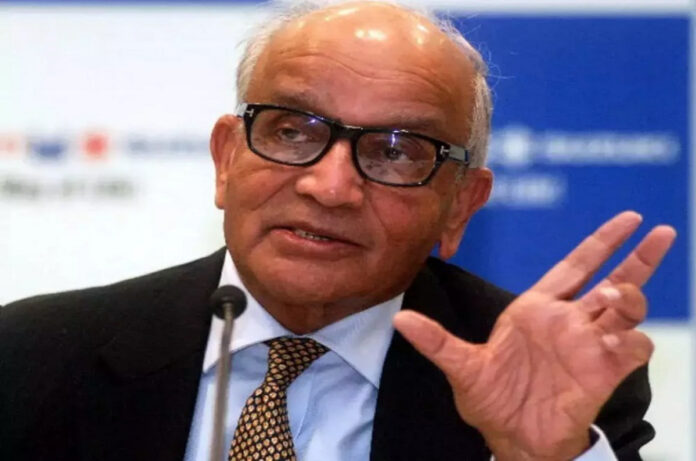RC Bhargava
- Small car growth is essential for long-term car growth in India.
- The Indian car market may post flat growth next year, but Maruti Suzuki aims to grow and grab its 50% market share.
- Multiple regulations have increased the cost of entry cars, compelling prospective buyers to defer purchases.
- The small car market has to grow for the long-term sustenance of the Indian car market.
- It could take another 2-3 years for the small car segment to revive.
Small Car Growth
R C Bhargava’s observations about the Indian automotive market, especially the small car segment, reveal several intricate factors affecting the current market dynamics and the future of the automobile industry in India. Here’s an analysis of the situation based on his statements:
- Significance of the Small Car Segment: Small cars or mini cars have traditionally been a significant segment in India due to factors such as affordability, compact size suitable for dense urban areas, and fuel efficiency. This segment caters to a large middle-class population, which prioritizes cost-effectiveness and practicality. By stating that the growth of other segments (like sedans and SUVs) is dependent on the small car market, Bhargava underscores that the foundational consumer base primarily evolves from small car owners who might eventually upgrade in the future.

Indian Car Market
- Regulatory Impact and Affordability Crisis: The introduction of multiple new regulations (possibly related to safety, emissions, etc.) has increased manufacturing costs, impacting the final pricing of entry-level cars. This development has a more pronounced effect on the small car segment, as the target demographic is highly price-sensitive. Consequently, potential buyers defer purchases, waiting for a more favourable economic situation or financing options, slowing down market growth.
- Market Realignment and Recovery Timeframe: The prediction that the small car market might take two to three years to revive indicates an expected period for economic stabilization and realignment of consumer purchasing power. This period could also allow for adjustments in the industry, such as the introduction of more cost-effective, compliant models, or new financing mechanisms that could ease the affordability issue for buyers.
Maruti Suzuki
- Economic Growth and Automotive Industry: There’s a symbiotic relationship between the country’s economic status and the automotive market. A thriving economy boosts purchasing power, reflecting increased car sales, and vice versa. However, a flat or struggling economy, growing at only about 6-7%, poses challenges. Sustainable growth in the automotive sector, especially the foundational small car segment, is crucial for the overall momentum of the Indian economy.
- Strategic Adaptations by Maruti Suzuki: In light of these challenges, Maruti Suzuki’s aim to retain or expand its market share involves strategic planning. This could include diversifying its portfolio to ensure a stronger presence in all segments, introducing budget-friendly yet regulation-compliant models, and perhaps ramping up its digital and retail channels to enhance sales and customer experience.
Regulatory changes and Consumer preferences
- Long-term Market Sustenance: Bhargava’s emphasis on the need for the small car segment to grow indicates its importance in maintaining a balance in the automotive sector. If neglected, it could lead to market distortion and an unhealthy reliance on high-end segments, which are often more vulnerable to economic fluctuations.
Conclusion
Revitalizing the small car market is not just about boosting sales figures for companies like Maruti Suzuki. It is about ensuring the accessibility of personal transportation to a broader demographic in India, which in turn, drives economic growth, supports the sustainability of the automotive industry, and potentially, contributes to the global competitiveness of the Indian market. Strategic interventions from both industry players and regulatory bodies are essential in navigating these complex challenges.
R C Bhargava’s insights highlight critical challenges and anticipations for India’s automotive industry, particularly emphasizing the pivotal role of the small car segment. The market’s contraction, influenced by regulatory impacts and an affordability crisis among consumers, calls for a nuanced approach to recovery and growth.
Reviving this segment is paramount, not solely for automotive manufacturers’ profitability but for the broader economic implications. A robust small car market stimulates the industry’s overall health, influences consumer purchasing power, and reflects the nation’s economic vigor. Furthermore, it forms a foundational consumer base that potentially scales to other vehicle segments, thereby sustaining holistic market growth.
Maruti Suzuki’s strategic aspirations to regain market share amidst these dynamics underscore the necessity for innovative, customer-centric solutions, possibly encompassing more affordable, regulation-compliant models, and enhanced purchasing mechanisms.
Therefore, the industry, with potential governmental support, must address the affordability barrier and regulatory challenges to realign the market towards balanced, sustainable growth. This effort will not only bolster the automotive sector but also contribute significantly to the larger framework of India’s economic progression.
































